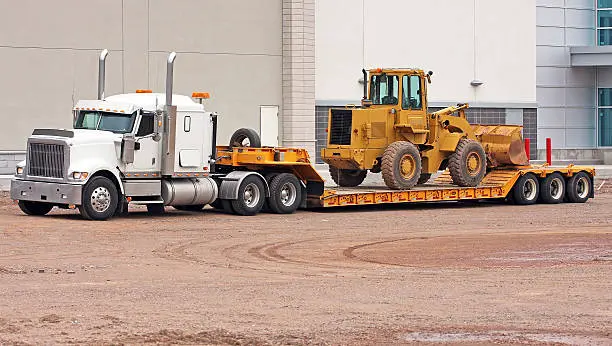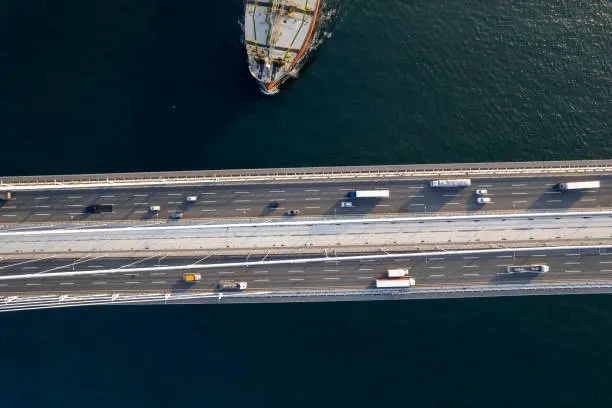
Streamlining Supply Chains: The Role of Pipeline Logistics
- Admin
In the vast landscape of global transportation and logistics, pipeline logistics stands as a silent but powerful force, responsible for the efficient movement of liquid and gas commodities over vast distances. While often overlooked compared to other transportation modes, pipeline logistics plays a crucial role in supporting industries such as energy, chemicals, and utilities, facilitating the seamless flow of resources from production sites to distribution centers and end consumers. In this article, we delve into the intricacies of pipeline logistics, exploring its key components, benefits, challenges, and its impact on global commerce and sustainability.
Key Components of Pipeline Logistics:
Pipeline logistics encompasses a range of activities and processes designed to optimize the transportation of liquid and gas commodities through pipelines. Key components include:
Infrastructure Development: Pipeline logistics begins with the development of pipeline infrastructure, including the construction of pipelines, pumping stations, and storage facilities. Pipelines are designed to transport specific types of commodities, such as crude oil, natural gas, petroleum products, and chemicals, with varying capacities and specifications tailored to meet industry requirements.
Operations and Maintenance: Pipeline operators are responsible for the day-to-day operation and maintenance of pipeline systems, ensuring the safe and efficient transportation of commodities. This includes monitoring pipeline performance, conducting inspections, and implementing maintenance and repair activities to prevent leaks, spills, and disruptions in pipeline operations.
Safety and Compliance: Safety and compliance are paramount in pipeline logistics, with strict regulations and industry standards governing pipeline operations. Pipeline operators adhere to safety protocols, risk management practices, and environmental regulations to minimize the risk of accidents, protect public health and safety, and mitigate environmental impact.
Supply Chain Integration: Pipeline logistics is integrated into the broader supply chain, connecting production sites, refineries, distribution centers, and end consumers. Pipeline operators collaborate with suppliers, customers, and logistics partners to coordinate transportation schedules, optimize inventory levels, and ensure timely delivery of commodities to meet demand.
Benefits of Pipeline Logistics:
Pipeline logistics offers several benefits compared to other transportation modes:
Cost Efficiency: Pipeline transportation is cost-effective for transporting large volumes of liquid and gas commodities over long distances, with lower transportation costs compared to other modes such as rail or truck.
Reliability: Pipelines provide a reliable means of transportation, with consistent transit times and minimal disruptions, reducing the risk of delays and supply chain disruptions.
Environmental Sustainability: Pipeline transportation has a lower environmental impact compared to other modes, with reduced carbon emissions, energy consumption, and land use, contributing to environmental sustainability and conservation efforts.
Safety: Pipelines are designed with safety features and protocols to prevent accidents and ensure the safe transportation of commodities, protecting public health, and minimizing the risk of spills or leaks.
Challenges in Pipeline Logistics:
Despite its benefits, pipeline logistics faces several challenges:
Regulatory Compliance: Pipeline operators must navigate complex regulatory frameworks and permitting processes, complying with environmental, safety, and land use regulations imposed by government agencies and regulatory bodies.
Public Opposition: Pipeline projects often face opposition from environmental groups, indigenous communities, and local residents concerned about the potential environmental impact, land rights, and public safety risks associated with pipeline construction and operation.
Security Risks: Pipelines are vulnerable to security risks, including sabotage, vandalism, and terrorist attacks, posing risks to public safety, environmental integrity, and supply chain security.
Maintenance and Aging Infrastructure: Aging pipeline infrastructure requires ongoing maintenance, inspection, and repair to ensure safe and reliable operations, with challenges related to corrosion, integrity management, and asset management.
Conclusion:
Pipeline logistics plays a vital role in supporting industries and economies worldwide, facilitating the efficient and reliable transportation of liquid and gas commodities essential for modern life. Despite facing challenges related to regulation, public opposition, and security risks, pipeline logistics offers significant benefits in terms of cost efficiency, reliability, environmental sustainability, and safety. As we navigate the complexities of global transportation and logistics, pipeline logistics will continue to play a crucial role in supporting industry, commerce, and sustainability in the years to come.
